in Bernard Slade
episodes
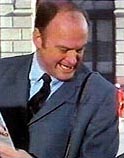
Gordon Jump
Episode #1
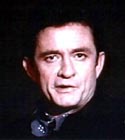
Johnny Cash
Episode #1
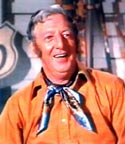
Ray Bolger
Episode #3
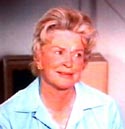
Rosemary DeCamp
Episode #3
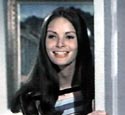
Jaclyn Smith
Episode #5

John McMartin
Episode #5
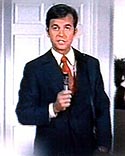
Dick Clark
Episode #13
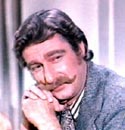
Richard Mulligan
Episode #17)
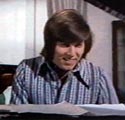
Bobby Sherman
Episode #25
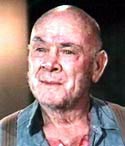
Dean Jagger
Episode #38

Continued...
GH: Are you ever amazed at how many stars got their start on The Partridge Family?
BS: Yes! I remember Jodie Foster being on the show because she spoke like a very intelligent 45-year-old even in those days. She was very smart. It's amazing how many people were on that went on to bigger things. Half the time I would never meet them because I wasn't around.
GH: David had announced that the fourth season would be his last. Do you remember any efforts to replace him and keep the show going?
BS: Not really. I think it was the same with all TV shows. The ratings were slipping. I think if the ratings had been high, the network would have moved heaven and earth to either keep him or replace him. Strangely enough, I got to know David better after the show was off. We happened to both be in Toronto when Shaun was doing a show there. We spent an evening together. Then, about ten years ago, I went back to TV briefly at MTM and David came by one day and we spent a long afternoon together and we had a lot of laughs. He had done some theatre then, and a producer that worked on a play of mine had worked with him on a musical called "Time" that he did in London. He had been living in England. It was nice, because he was young when he did "The Partridge Family" and we never had a chance to spend much time together.
GH: Do you think the show could have gone on for another year if the time slot hadn't been changed opposite "All In the Family" on Saturday nights?
BS: I think so. Shirley has said the same thing in interviews.
GH: Do you remember when you got word that the series was cancelled?
BS: In 1974 I was involved with my Broadway show, "Same Time Next Year." It didn't open till March of 1975, but by then I was pretty involved in that. I'm sure it was at that point. I had very little to do with "The Partridge Family" in it's last year.
GH: Did you have anything to do with the addition of Ricky Segall to the fourth season?
BS: That would have been somebody else. When you work in the theatre, the writer has approval of everything, but in television or films that's not so. It's always a selling point to go to the network and say "OK, you may be thinking of canceling us, but we have so-and-so to boost the ratings up." By the time they got to the last season, they were desperate for ideas, which happens on every show. When "Bewitched" reached it's sixth, seventh or eighth season, they were just repeating idea from the first five seasons. It got tougher and tougher. Plus, the kids were getting older. You couldn't keep writing for young kids, when they were growing up.
GH: Why did the number of episodes get reduced every season?
BS: That had nothing to do with "The Partridge Family" specifically, that was to do with the networks. When I started working down here, we used to do 39 shows, believe it or not! And then they would run 13 weeks of summer reruns. Then they went down to 32, then 26. That had more to do with budgets and money. I know "The Flying Nun" was only on 3 years, but I think there are close to 100 episodes! Syndication wasn't a factor in those days, where it is today.
GH: Any funny stories you remember about The Partridge Family?
BS: By some strange fluke, I own the movie rights to "The Partridge Family". In those days, for a nominal fee, the studio would tie up the movie rights, which wasn't really a big deal because at that time studios weren't making movies of television shows. With "The Partridge Family", they simply forgot to put that clause in. So, about two or three years ago, I got a call from Warner Bros. and Paul Junger Witt's production company. They decided they wanted to do a movie. When they checked for the rights, they found out I owned them. So I made a deal with them, and two options have been picked up. They have two or three scripts but I haven't even seen them. I'm totally removed from that. I just took the money and ran. Who knows what will happen with that project?
GH: So you sold the rights?
BS: No, I still own the rights. I sold them the option to make the film. Every time the option runs out, they renew it, saying they are going to make it. I have heard a lot of things second hand. I think they were going to do something totally different from what it was. I think I heard it was going to be a black family, or something really far out. Years ago, the natural thing would to have made it a "second generation" type of thing, where the characters have grown up and their kids take over, after listening to old tapes in the garage.
GH: Why is it that most motion pictures that are based on old TV shows alter the original so much that it no longer resembles the very show they wanted to portray?
BS: I have no idea. The "Brady Bunch" films made fun of it, and it worked. But who knows if they will ever make "The Partridge Family" film?
GH: David has been very vocal about the problems his sudden fame had caused - as well as his dislike for the music at the time. Was it ever a problem on a daily basis on the set?
BS: Well, here is this kid who was suddenly catapulted into national prominence in a very short period of time. I think it was Julia Roberts who, when asked, "What's the downside to being a major movie star?" said "There is no downside!" Sally Field would complain about having to wear the nun's habit on "The Flying Nun" yet she was 17 years old and driving around Hollywood in a red Ferrari! And with David, I don't know what would have happened to him [without "The Partridge Family"] -- he's very talented. But I think he has kind of changed his mind a bit by now.
GH: Well, it can't be easy for an actor, to be pigeonholed into one particular character. Especially one that was the antithesis of who he was.
BS: What happens when you go into a show like that -- even ones where you aren't doing concerts on the weekends -- is that you are in a cocoon. You get out of touch with reality. I think if you are then doing concerts with thousands of screaming little girls, you think the whole world is about you. I remember going backstage to see a very big star who is NOT like this. She is a friend of mine, performing in a play I wrote. We were going out to dinner, and she said "Let's go out the back way because I don't want to fight with that screaming mob outside." Well, the screaming mob was one old wino who was in the gutter.
GH: A lot of times you have managers and agents who are pumping your ego too.
BS: David's manager [Ruth Aarons] wasn't like that. I remember her. She wasn't your idea of a high-powered agent. She had a motherly quality as I remember. The point I am trying to make is you just can't take yourself too seriously. I'm not sure I want the fact that I created "The Flying Nun" on my tombstone, either, but it was fun!
GH: "The Partridge Family" was one of the first shows on TV where there was a single parent. The pilot mentioned the father had passed away six months previously, and we never heard of him again. Was there a conscious effort to not mention the father again?
BS: I can't be sure of this, but I seem to remember one of the first drafts had her divorced. But in those days you couldn't have a divorced person, and they certainly didn't want to mention death, although the why and how of a dead father would have been an avenue that could have prompted a lot of stories, too. But we are talking "ice cream time". It wasn't that sort of show. You have to remember that these families on these shows became family to the viewers too. Every Friday night at 8:30. So you don't want an unhappy home. It seemed like an ideal family.
GH: Shirley used to get runaways on her front lawn, because she portrayed the mother that everybody wanted.
BS: In those days you didn't really have a problem with stalkers. Although on "The Flying Nun" I remember there was a guy working his way across the country to see Sally Field. I don't think we ever told her. But he arrived and they arrested him. There are always people out there. It's dangerous in a way.
GH: David had to call the FBI at one point, because there were kidnapping threats against him.
BS: That's true. I remember that. They had to move him to a different house.
GH: Was that during the filming?
BS: I believe so. Again, I wasn't always on the set.